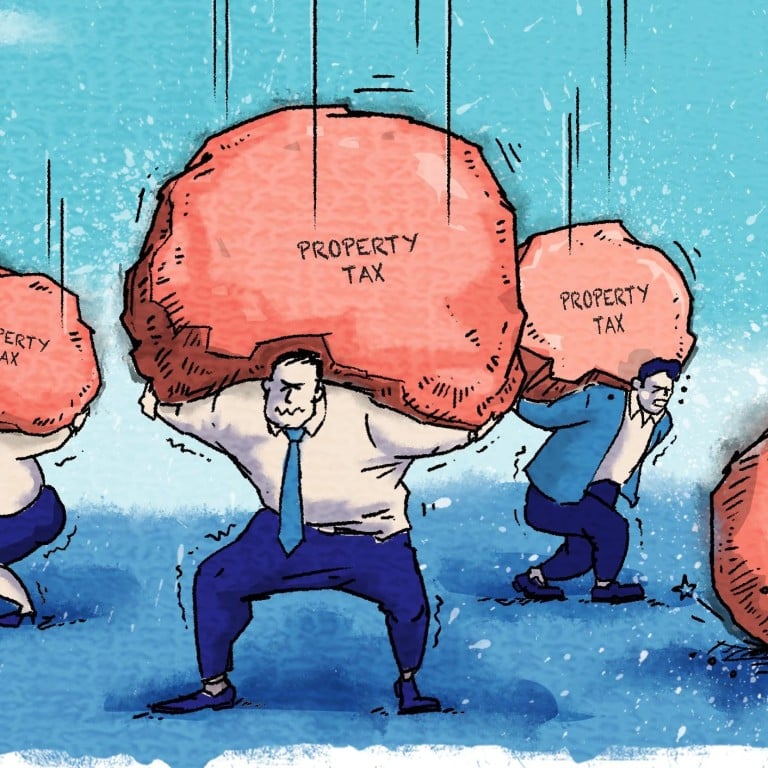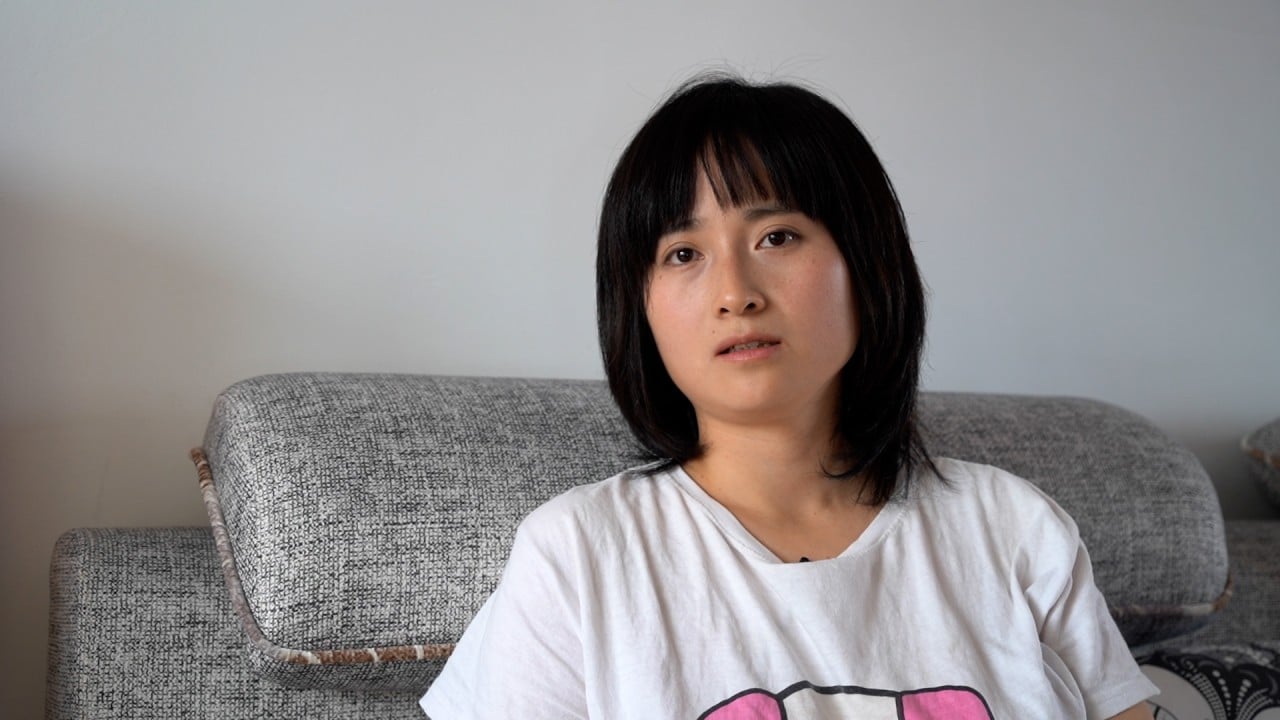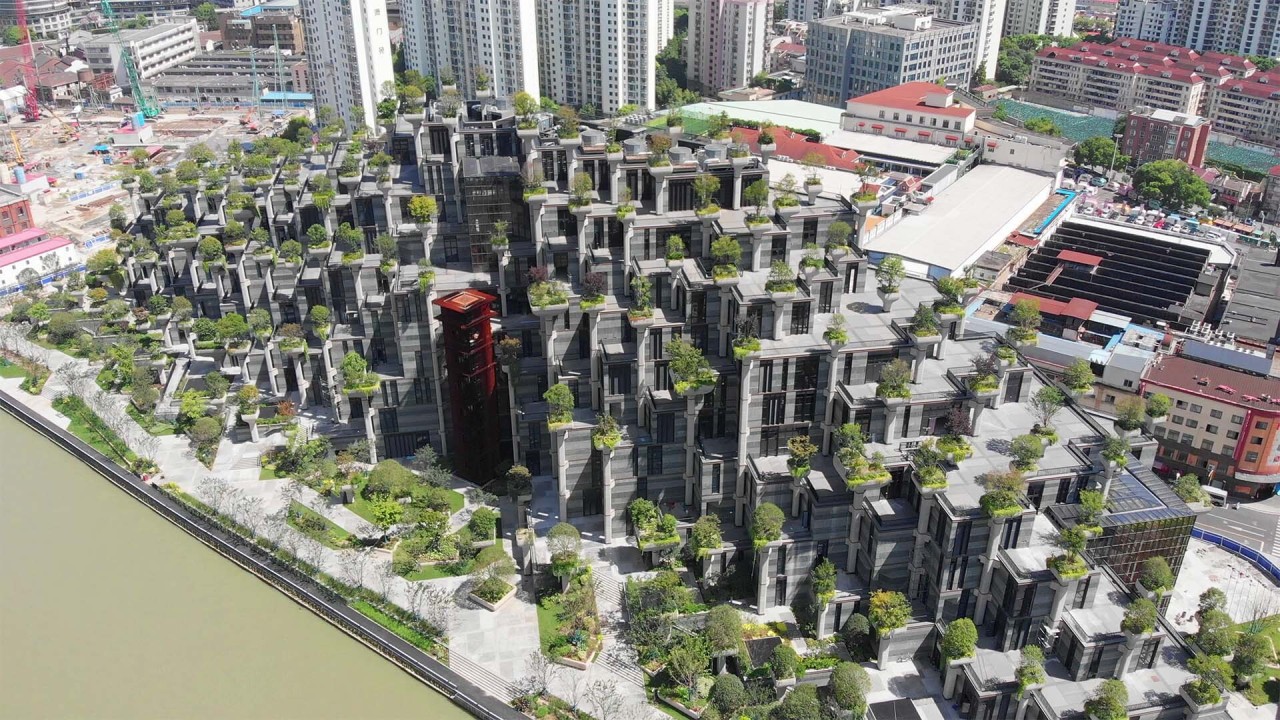
China’s property tax causing sleepless nights for homeowners as Beijing walks the ‘tightrope’
- China’s property tax plan is part of Xi Jinping’s so-called common prosperity campaign to redistribute wealth and to address widening social inequality
- The plan will not be implemented straight away, with a five year pilot programme set to test the proposal before it is eventually rolled out across the country
Computer programmer Zheng Wenxuan has two flats in Beijing – one for his own family and one for his parents who moved from their hometown in the northeastern province of Heilongjiang.
The 42-year-old spends 25,000 yuan (US$3,900) a month for the combined mortgage payments – a heavy burden for the only breadwinner in the family.
I’ve had many sleepless nights recently. The Sword of Damocles is hanging over my head
“The market values of my properties have already declined by 10 per cent since the announcement of the new policy. If we have to pay the tax for owning a second apartment, as some speculate, the annual taxation will add to my financial burden,” Zheng said.
“I’ve had many sleepless nights recently,” Zheng added. “The sword of Damocles is hanging over my head.”
No details have been revealed officially, only that it will be levied on the value of residential and non-residential properties across the nation, with the exception of rural properties.
It is widely believed the taxation criteria will vary from city to city to accommodate regional economic disparity.
But economists widely expect households will be taxed if the size of their first property exceeds a certain threshold of square metres per person, while another theory is that owners will only be taxed if they own more than one property.
“Property tax is used to redistribute wealth – taxing the largest wealth owners and redistributing to the poor and disadvantaged through financial subsidies, social welfare and other means,” said Gary Liu Shengjun, head of the Shanghai-based research group, China Financial Reform Institute.
“In China, the central government is walking a tightrope. It will make no difference if the threshold is too high and taxation is low. Otherwise, it will hurt the middle class and benefit local governments, the supposed receiver of the property tax.”
How much will China’s struggling local governments benefit from property tax?
“There has to be a rigorous system to ensure that those with housing wealth above a certain level are fully covered by property registration, and cannot avoid or evade payment,” said George Magnus, research associate at Oxford University’s China Centre.
“Property taxation is taxation of capital and it aligns closely with the essence of what the common prosperity slogan conveys. Common prosperity, though, remains an empty slogan and the pilot schemes appear to be kicking the property tax idea into long grass.
“We shall have to see how the pilots work out and whether in fact a nationwide tax actually emerges as planned.”
I’ve been working day and night to pay for the flats. During a recent check-up, I was told by the doctor that my heart functioned like a 70-year-old’s after years of overwork
According to a survey of over 30,000 households in 2019 by the People’s Bank of China, 70 per cent of the assets held by urban households, which make up most of China’s middle class, was in property.
Around 58 per cent of urban households own one house, 31 per cent have two, while 10.5 per cent have three or more, with mortgages making up 76 per cent of all household liabilities, according to the 2019 central bank survey.
Programmer Zheng says he feels like he has been “kidnapped” by his two properties, and that it would be “unfair” if he was made to pay a property tax.
“I’ve been working day and night to pay for the flats. During a recent check-up, I was told by the doctor that my heart functioned like a 70-year-old’s after years of overwork,” he said.
“I moved my parents from their hometown to take better care of them. They are not qualified as property owners in Beijing because they are not local residents. So both flats are under my name.
“I am already the subject of a high rate of individual income tax rate, additional taxation will be unbearable.”
Less than six per cent of China’s 1.4 billion population pays individual income tax, which can be as high as 45 per cent, according to a report by the Chengdu-based Southwestern University of Finance and Economics in 2018.
Most taxpayers are in the middle class, and their tax is directly deducted from their salary every month.
There are several possible ways to evade the tax, including by holding properties and equities or by under-reporting salaries earned via an individuals’ own companies.
China charges no tax on the capital gains of its residents, while its corporate income tax is much lower than individual income tax.
Under the current scheme, China taxes buyers only during property transactions.
How does China’s property tax plan fit Beijing’s ‘common prosperity’ drive?
Local governments earn a significant part of their revenue from land sales – 8.4 trillion yuan (US$1.3 trillion) last year, compared with 10.1 trillion yuan from taxes, with the cost ultimately borne by the property buyers.
“We can expect strong resistance from local governments, because under the new tax regime, land sales will be better regulated and property taxation is unlikely to offset the decrease in land sales,” Yi added.
Beijing should, according to Yi, rely on a property-evaluation system that reflects market prices, instead of property prices reported by local governments, while it should also introduce suitable tax rates for different locations across the country.
My husband and I worked hard … I’m willing to pay the tax, as long as the government can ensure all eligible people are subject to it
“The central government should be the real decision maker. Otherwise the tax will die on the vine,” he said.
Property taxes have been levied on a trial basis in Shanghai and Chongqing since 2011, with limited impact. The tax in Shanghai was aimed at curbing home prices, while Chongqing focused more on reducing wealth inequality.
The tax in Shanghai applies only to properties bought since the end of January 2011, with a tax rate of 0.4 to 0.6 per cent, while in Chongqing it is levied on existing stand-alone houses, with the rates at 0.5 per to 1.2 per cent.
But they have a narrow scope and the taxes are only applied on high-priced and second homes, meaning there has been no discernible impact on property prices, nor has the tax raised generated much revenue for local authorities.
“My husband and I worked hard to earn the money for four properties in Beijing. I’m willing to pay the tax, as long as the government can ensure all eligible people are subject to it,” said Judy Wang, a senior executive at a private company in Beijing.
Local governments lack the incentive to push ahead with the tax, as the total value of China’s urban housing is estimated at 350 trillion yuan. If taxed at 1 per cent under the new proposal, the annual revenue of 3.5 trillion yuan (US$548 billion) would be less than half of the annual land sales in 2020, according to Larry Hu, an economist with Macquarie Group in Hong Kong.
However, Rosealea Yao, an analyst with Gavekal Dragonomics in Hong Kong, said the examples of Shanghai and Chongqing should not be considered a good guide for the upcoming pilot schemes and subsequent property tax law.
“Progress on the property tax has been explicitly made one of Xi’s top priorities, despite the resistance that the tax has long faced from other government officials,” Yao said.
“While a nationwide property tax is unlikely to arrive before 2027, the likelihood of the tax actually being levied now seems much higher.”
The property market has been cooling down remarkably recently after almost two decades of rises as the news of the tax, together with a slew of credit-tightening measures, have dampened zest in property investment.
Many friends are worried about a property market crash triggered by the tax
In October, the national home price fell for the second month in a row, with 64 of the 70 cities in the sample provided by the National Bureau of Statistics showing a decline, up from 52 in September.
“Everyone believes that Shenzhen will be one of the pilot cities to launch the new property tax. But everyone is confused as to what criteria will be used for the pilot, by per capita living area, or by total property value. It makes us anxious,” said Jade Zeng, who owns a 70-square-metre (753 sq ft) three-bedroom flat and two condos in Shenzhen.
“The expectations of the property tax have already had a clear impact on transaction volumes and prices in the second-hand housing market.”
According to Zeng, the market price of a flat similar to the one she owns in Shenzhen has fallen from 10 million yuan (US$1.6 million) to 9 million yuan in a couple of months.
“A lot of people have borrowed heavily to invest in properties, even abusing consumer loans and loans to help small and medium enterprises,” added Zeng, who needs to repay 60,000 yuan (US$9,387) per month to several banks for mortgage payments on the three properties.
“Many of my friends are worried about a property market crash triggered by the tax.”








